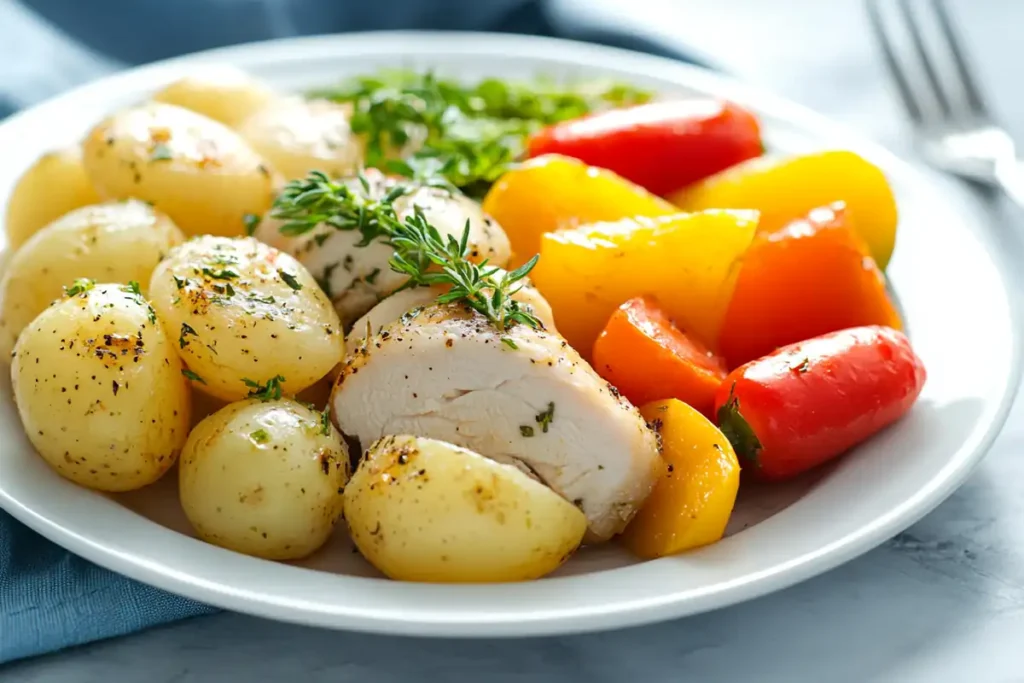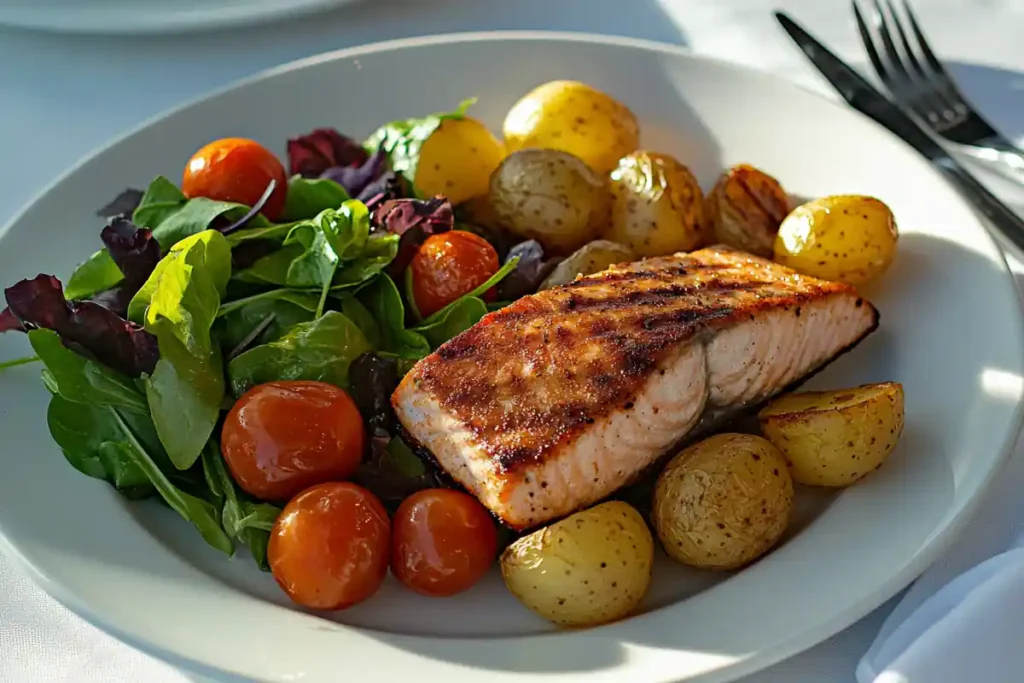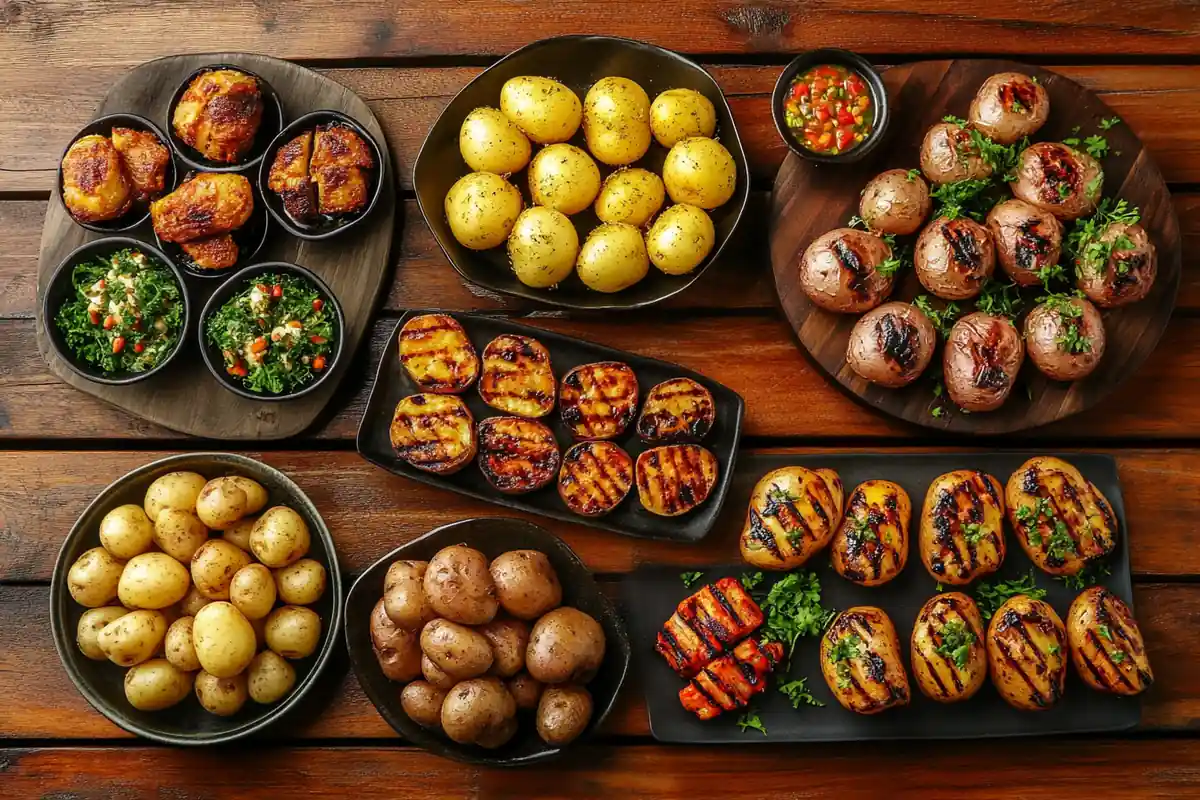Do you wonder should I avoid potatoes to lose belly fat? This article explores the role of potatoes in weight loss and fat reduction. Discover whether you need to cut them out of your diet.
The Potato Puzzle: Belly Fat and Your Diet
Many people question should I avoid potatoes to lose belly fat. Potatoes often get a bad reputation in weight loss plans. However, they have nutritional value. Therefore, understanding their role is key.
Should I avoid potatoes to lose belly fat? Understanding Belly Fat
Belly fat, also called visceral fat, is stored around your abdominal organs. Increased belly fat may lead to health issues. For instance, it may cause heart disease and type 2 diabetes. So, reducing this type of fat is important.
Potatoes: A Closer Look
Potatoes are a food that provides nutrients. They also supply energy. However, potatoes are high in carbohydrates. This may be why they’re often questioned in weight loss plans.
Are Potatoes the Problem?
So, should I avoid potatoes to lose belly fat? The answer is not always straightforward. Therefore, it’s crucial to understand the full picture. It is not the potato itself that’s the problem. Instead, it is often how you cook and eat them.
How Potatoes Impact Weight
Limiting carbohydrates is a common approach for those seeking weight loss. However, it is not always necessary. Let’s look at how potatoes might fit in your plan.
Potato Preparation Matters

The way you prepare potatoes greatly affects their impact on weight. For example, fried potatoes add many calories. Conversely, boiled or baked potatoes are less problematic. Additionally, adding butter, sour cream, and other enhancements can greatly increase calories. Therefore, simple preparation is key.
Should I Avoid Potatoes to Lose Belly Fat?: Glycemic Index
The glycemic index (GI) is how fast foods raise your blood sugar. Potatoes, especially some varieties, may have a higher GI. This can cause a rapid spike in blood sugar. Consequently, this can lead to fat storage if not managed well. However, some potatoes have a lower GI. These include sweet potatoes.
Portion Control is Essential
As with any food, portion size matters. Eating a large amount of potatoes can lead to increased calorie intake. Thus, control your portions. Indeed, this is vital to managing your weight.
Alternatives to Consider
If you’re still worried about carbohydrates, there are things you can do. Consider swapping some potatoes for lower-carb foods.
Lower-Carb Vegetables
There are many lower-carb vegetables that can easily replace potatoes. For example, cauliflower, broccoli, and zucchini are great choices. They offer fiber and nutrients without excessive carbohydrates.
Sweet Potatoes as a Compatible Choice
Sweet potatoes are a great alternative to regular potatoes. They often have a lower glycemic impact. Moreover, they are rich in vitamins and fiber. Sweet potatoes can be a good way to satisfy potato cravings.
Exploring Varieties of Potatoes
Another option is to choose different varieties of potatoes. Smaller, waxier varieties like fingerlings and red potatoes may have a slightly lower GI. This could be a better fit in your diet plan.
Should I Avoid Potatoes to Lose Belly Fat?: The Bigger Picture
Basically, overall diet and lifestyle are key. You must consider all the macronutrients you eat. Accordingly, physical activity is just as important.
The Importance of a Balanced Diet
Therefore, a balanced diet is crucial for overall health. It is also important for weight loss. Undoubtedly, your diet must have proteins, healthy fats, and carbohydrates. Potatoes can fit into this if you plan wisely. Consequently, focus on the overall pattern of food you eat.
Exercising for Belly Fat Reduction
Furthermore, exercising helps burn fat, including belly fat. Indeed, regular physical activity is a must. Combine exercising with a healthy diet. This promotes a harmonious weight loss process.
Lifestyle Habits
Other lifestyle habits affect your weight too. For example, adequate sleep and stress management are important. These are often overlooked aspects of a weight loss journey.
Should I Avoid Potatoes to Lose Belly Fat?: Debunking Myths
Many myths exist about foods and weight loss. Especially, potatoes often fall under the spotlight. Therefore, it is essential to look at the facts.
Myth: Potatoes Make You Gain Weight
Specifically, it’s not the potato that causes weight gain. Instead, it is often how much you eat and how you prepare it. Thus, be aware of your portions and cooking methods.
Myth: All Carbs are Bad
Generally, carbohydrates are not all the same. Specifically, whole grains and some vegetables like potatoes provide needed energy. Therefore, it is not wise to limit carbohydrates entirely. The focus should be on good choices and portion control.
Truth: Moderation is Key
In fact, moderation is key when it comes to any food. Even healthy foods can contribute to weight gain if overeaten. Therefore, pay attention to portion control.
Should I Avoid Potatoes to Lose Belly Fat?: Making Informed Decisions
Ultimately, deciding whether to avoid potatoes depends on individual preferences and dietary needs. Therefore, make informed decisions based on your goals.
Listen to Your Body
Initially, pay attention to how your body responds to potatoes. Do they make you feel full and satisfied? Conversely, do they cause bloating or other issues? Accordingly, adjust your diet as needed.
Seek Professional Advice
If you have specific health conditions, consult a dietitian. Indeed, they can provide customized guidance. Furthermore, they can tailor a plan to meet your exact dietary requirements.
Enjoying Potatoes in Moderation
Finally, there is no need to remove potatoes if you enjoy them. Instead, enjoy them in moderation. Prepare them with healthy methods. Balance them with a nutritious diet.
The Role of Fiber in Potato Consumption
Fiber is a key aspect when thinking about potatoes. Fiber can affect how your body processes food. It also impacts your overall health. Therefore, understanding fiber’s role is crucial.
Insoluble Fiber in Potatoes
Potatoes contain both soluble and involuble fiber. Insoluble fiber helps with digestion. Specifically, it adds bulk to your stool. This can help prevent constipation. Thus, fiber plays a beneficial role in overall digestive health.
The Benefit of Soluble Fiber
Soluble fiber can help lower cholesterol. It also helps regulate blood sugar levels. Further, it can contribute to a feeling of fullness. Consequently, this can aid in weight management. This type of fiber can be highly beneficial to your diet.
How to Increase Fiber with Potatoes
To boost the fiber content, eat potatoes with their skin on. The skin is where much of the fiber is located. Therefore, wash potatoes well before cooking, and eat the skin. Also, consider adding other vegetables to your potato dishes to further enhance the fiber content.
How Cooking Methods Impact Potato Health
The cooking method for potatoes affects their nutritional profile. Specifically, some methods are healthier than others. Therefore, it’s important to consider this.
Best Cooking Methods for Potatoes
Baking, boiling, and steaming are the best methods for cooking potatoes. These methods help maintain their nutrients. Additionally, they avoid adding extra fats. Indeed, keeping the cooking simple can be beneficial for weight control.
Unhealthy Cooking Methods
Frying potatoes adds unnecessary fats and calories. Specifically, fried potatoes can derail your weight loss efforts. Furthermore, avoid adding too much oil, butter, or cheese. This can greatly increase the calorie count. Therefore, be aware of all added ingredients when cooking.
Grilling as a Healthy Option
Grilling potatoes is another way to cook them healthily. For example, you can grill potato slices or wedges. This can create a tasty and satisfying meal. Moreover, it often requires less added fat than frying.
Including Potatoes in a Weight Loss Plan
Basically, it is possible to include potatoes in a weight loss plan. You just need to do it carefully and thoughtfully. Accordingly, smart planning is key to achieving your goals.
Smart Portion Control with Potatoes

Be mindful of your portion sizes. A small to medium-sized potato is usually enough for a meal. Indeed, measure your portions to prevent overeating. Thus, using smaller plates may also help with portion control.
Combining Potatoes with Other Foods
Combine potatoes with proteins and other vegetables. This helps to create a balanced meal. Furthermore, consider adding a lean protein like grilled chicken or fish. Moreover, add a variety of vegetables for added nutrients and fiber.
Timing Your Potato Consumption
Consider the timing of your meals. For example, you might choose to eat potatoes earlier in the day. Specifically, this can provide you with energy for your activities. Consequently, think about how your body uses energy throughout the day.
Beyond Weight Loss: Health Benefits of Potatoes
Potatoes also provide several health benefits beyond weight loss. Specifically, they contain vitamins and minerals. Therefore, it is not wise to discount their value.
Vitamins and Minerals in Potatoes
Potatoes contain vitamins like vitamin C and vitamin B6. Additionally, they contain minerals such as potassium. Potassium is vital for regulating blood pressure. Furthermore, these nutrients contribute to overall health.
Antioxidants in Potatoes
Potatoes contain antioxidants, which help protect cells from damage. Moreover, the antioxidants help reduce the risk of chronic diseases. Thus, these nutrients can be very beneficial to your body.
Potatoes and Satiety
Potatoes can help you feel full and satisfied. This can reduce the likelihood of overeating later. Indeed, their fiber content helps promote satiety. Therefore, they can be a good food to include in your meals.
Should I Avoid Potatoes to Lose Belly Fat?: Tailoring to Your Needs
Ultimately, the decision about potatoes depends on your personal needs. Therefore, understand your body’s responses. Then you can adapt your diet accordingly.
For Active Individuals
If you are active, potatoes can provide you with needed energy. Specifically, they contain carbohydrates that fuel workouts. Accordingly, use this to your advantage, and plan your meals.
For Those with Dietary Restrictions
If you have specific dietary needs, consult a dietitian. Indeed, they can create a personalized plan that suits your needs. Furthermore, they can advise you on how to best include potatoes if desired.
Considering Preferences and Habits
Finally, consider your own preferences and habits. Eating is often tied to emotions and habits. Therefore, be patient with yourself and make gradual changes. Specifically, try new recipes and ways of cooking potatoes that are healthy.
Should I Avoid Potatoes to Lose Belly Fat?: Conclusion
So, should I avoid potatoes to lose belly fat? Not necessarily. Potatoes can fit into a healthy diet if eaten in moderation and prepared wisely. Therefore, consider them as part of a balanced approach to weight management. Pay attention to portion size and your overall food choices. In conclusion, it’s not always what you eat, but how much and how you prepare it. Consequently, think about your entire diet and lifestyle when trying to lose weight.

